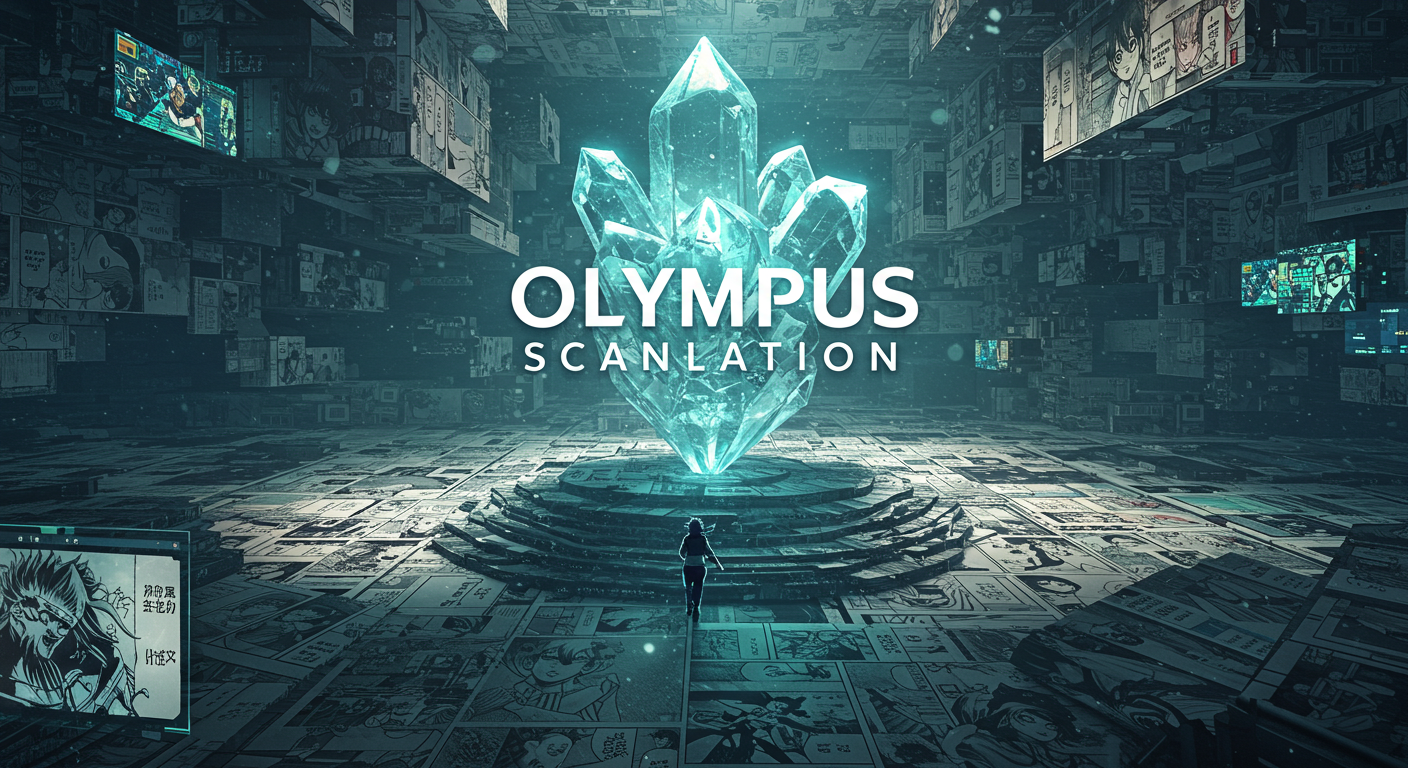In recent years, the global manga community has expanded at a breathtaking pace. Manga lovers from all corners of the world seek stories that span genres — from romance and action to supernatural thrillers and slice-of-life dramas. Yet, even as demand grows, accessibility remains a challenge, especially for lesser-known titles that may never see an official release outside Japan.
That’s where Olympus Scanlation comes into the picture.
Dedicated, fast, and deeply passionate about manga, Olympus Scanlation is one of many fan-driven groups that help fill the translation gap by providing unofficial, high-quality scanlations of Japanese manga. But Olympus is more than just a name in the scanlation world — it’s a symbol of dedication to storytelling, cultural sharing, and the love of manga itself.
In this guide, we’ll explore what Olympus Scanlation does, why it matters, and how it shapes the manga ecosystem for global readers.
What Is Olympus Scanlation?
Olympus Scanlation is a fan-run group committed to scanning, translating, editing, and typesetting manga titles that have not yet been officially translated into other languages. Their work is entirely non-profit and passion-driven, aimed at making manga accessible to international readers who would otherwise never discover these stories.
The team is typically composed of:
- Translators who convert Japanese dialogue into English (and sometimes other languages)
- Cleaners and editors who prepare scanned pages for digital use
- Typesetters who place translated text into speech bubbles and narration boxes
- Proofreaders who ensure quality and consistency
Olympus Scanlation is known for:
- High-quality releases
- Niche and underappreciated manga titles
- A respectful approach toward creators and the original work
The Rise of Scanlation Communities
Before we dive deeper into Olympus Scanlation’s role, it’s important to understand the bigger picture.
What Is Scanlation?
“Scanlation” is a blend of “scan” + “translation.” It refers to the practice of scanning manga pages, translating them into another language (usually English), and distributing them online for free.
The roots of scanlation go back to the early 2000s, when:
- Official licensing was slow or absent
- Fans wanted to read manga that was never published outside Japan
- Communities of readers began forming online around these unofficial translations
While controversial in the legal sense, scanlation groups like Olympus operate in a gray zone, navigating between fan service and copyright boundaries.
Why Olympus Scanlation Matters
1. Unlocking Hidden Manga Gems
One of Olympus Scanlation’s biggest contributions is its focus on rare, underrated, or forgotten manga titles. These are often series that:
- Don’t have enough commercial appeal for major publishers
- Are too old or obscure for licensing
- Belong to niche genres (josei, seinen, historical, etc.)
Without groups like Olympus, many of these stories would remain locked behind language barriers.
2. Building a Global Manga Community
Olympus Scanlation helps foster a shared global reading experience. Readers from the U.S., Philippines, France, Brazil, India, and beyond can access the same manga chapter on the same day, thanks to Olympus’s efforts.
This leads to:
- Fan discussions and community-building on platforms like Reddit, Discord, and manga forums
- Broader appreciation for Japanese storytelling, art, and culture
- Greater demand for official translations and physical volumes
3. Bridging the Time Gap Before Official Releases
Some titles do get licensed eventually — but it can take months or even years after their initial release in Japan. Olympus often fills this gap, giving fans early access while keeping the hype alive.
Once official versions are released, many fans support the authors by:
- Purchasing physical or digital volumes
- Spreading word-of-mouth
- Writing reviews and creating fan content
How Olympus Scanlation Works
Ever wondered what goes into producing a single scanlated manga chapter? Here’s a quick look behind the curtain at Olympus Scanlation’s process:
Step 1: Raw Scanning
The team obtains raw manga pages, either by purchasing physical copies or sourcing digital scans.
Step 2: Translation
A fluent Japanese speaker translates the content into the target language, keeping cultural nuance intact.
Step 3: Cleaning
Scanned pages are cleaned of any blemishes, text, or background noise using photo-editing software.
Step 4: Typesetting
The translated dialogue is added using fonts that match the tone and flow of the original manga.
Step 5: Proofreading & Quality Check
Each chapter is reviewed by another set of eyes to catch errors and ensure quality standards.
Step 6: Distribution
Finished chapters are uploaded to manga reading sites or the group’s own platform for readers worldwide.
Legal & Ethical Considerations
It’s impossible to talk about scanlation without touching on the legal gray area it operates within.
Is Olympus Scanlation Legal?
No — scanlation technically infringes on copyright law, as it involves reproducing and translating work without the publisher’s permission.
However, Olympus and similar groups generally follow certain ethics, such as:
- Stopping distribution when a series gets officially licensed
- Not profiting from their work (no ads or monetization)
- Crediting the original creators
- Encouraging fans to support official releases when available
Many fans see these efforts as complementary rather than competitive with official publishing.
Popular Manga Titles Brought to Light by Olympus Scanlation
Here are just a few types of manga Olympus Scanlation tends to focus on:
Hidden Romance Gems
Stories that go deeper than your typical love triangle — often exploring mature themes, historical settings, or unconventional relationships.
Psychological and Seinen Titles
Olympus often picks seinen (adult male audience) manga that tackle philosophical or complex social issues.
Slice-of-Life & Cultural Dramas
From small-town mysteries to family sagas, Olympus shines a light on stories rooted in Japanese life that rarely get global attention.
How to Support Olympus Scanlation
While you can’t donate money or purchase their releases, you can still support their mission by:
- Spreading the word about the manga they translate
- Purchasing official versions if/when they become available
- Engaging with the community on forums and Discord servers
- Leaving positive feedback (respectfully) to encourage their work
Final Thoughts
Olympus Scanlation represents the heart of global manga fandom — passionate, collaborative, and driven by love for storytelling. In a world where licensing is slow and many gems go unnoticed, Olympus steps up to ensure that readers worldwide can experience the full depth and beauty of Japanese manga.
While debates around legality and ethics continue, one thing is clear: Olympus Scanlation has opened doors to worlds we might never have seen otherwise.
So, next time you’re reading a chapter with crisp translations and clean panels, remember — it might just be Olympus behind the scenes, quietly making manga magic happen.
🔍 Frequently Asked Questions (FAQ)
❓ Is Olympus Scanlation free to use?
Yes, Olympus releases scanlated manga for free and does not monetize their content.
❓ Do they scanlate ongoing or completed series?
Both! They work on completed series, ongoing manga, and even one-shots that don’t get mainstream attention.
❓ What happens if a manga gets officially licensed?
Olympus will typically remove their version to encourage readers to support the official release.
❓ How can I join Olympus Scanlation?
Most scanlation groups post recruitment notices for translators, editors, and proofreaders on their website or social media.




